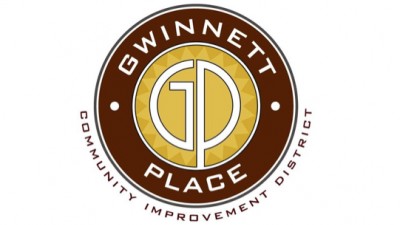It Takes A Global Village: Plan Emerges For Future Use Of Gwinnett Place Mall Site

After decades of decline, the once-bustling Gwinnett Place Mall in suburban Atlanta finally joined the ranks of defunct shopping centers when most of the property was purchased by Gwinnett County in April 2021. But even as the mall sat mostly vacant, the county’s population continued to rise, reflecting its status as one of Georgia’s fastest-growing counties.
The result: The large 1980s-era retail site that had once served as a sort of town center for the area became a drag on the local economy and did not reflect the community’s diversity and vibrancy.
A new plan proposes transforming the mostly vacant mall in unincorporated Gwinnett County near Duluth, Georgia, into a high-density regional hub that reflects the modern needs of its growing population. Gwinnett County, the Atlanta Regional Commission and the Gwinnett Place Community Improvement District’s implementation plan envisions a mixed-use development far different from the food courts and acres of parking lots that once defined the area.
“This is still a strong area, but at its heart is a now-dead mall that many years ago helped put Gwinnett County on the map,” said Joe Allen, GPCID executive director. “I think this plan will again put Gwinnett Place on the map, but this time as an example of what successful redevelopment can look like.”
The GPCID “Global Villages” plan lays out a mixed-use town development anchored by a 50K SF regional activity and international cultural center. The plan calls for mostly residential development with a limited amount of retail and office space. Green space is planned throughout, most notably in the form of a 4.4-acre central park and feeder trails to connect to McDaniel Farm Park and more.
“This gives us an opportunity to truly transform this area for the 21st century from its old auto-centric focus on big-boxes and a sea of asphalt parking into something that is more human-scaled, walkable and livable,” he said.
The plan, which GPCID created in partnership with Gwinnett County, the Atlanta Regional Commission and planning firm Vanasse Hangen Brustlin, calls for seven residential “villages” to be centered on small parks and plazas and connected by pathways. Each village would include 150 to 500 units of market-rate and affordable multifamily housing ranging from four to seven stories in height. The plan also proposes as many as 1,000 structured parking spaces.
About 55K SF of new retail and 50K SF of office space are also proposed. Per their request, the last remaining retail tenants at Gwinnett Place Mall — Macy’s, Mega Mart and Beauty Master — are remaining in their current buildings.
Other highlights include an international culture and community center to provide a library and a location for residents to participate in the arts and educational programs. Allen said this was important to people in the area, who represent a mix of races and ethnicities.
The plan also takes sustainability and the environment into consideration. The development’s street design is meant to manage its stormwater and an improved Gwinnett Place Transit Center would connect residents to other Atlanta-area communities.
Allen noted that Global Villages, which would be developed over several years, is the result of GPCID and its partners seeking extensive community input and conducting a data-driven analysis to ensure the proposal is economically feasible.
GPCID heard from more than 3,000 residents, often by venturing into the community to get their opinions at local fairs and pop-up events.
“That was a critical part of this effort because we believed in going to where the people are and not asking them to come to an official public meeting," Allen said. "Otherwise, you only get the same two or three folks who show up."
Community input also inspired the plan’s emphasis on walkability, green space, attainable housing and inclusion of a cultural center, he noted.
At the same time, GPCID and its partners carefully studied market data to predict what mix of development would best serve the area in coming decades. That is why their proposal emphasizes much-needed residential development over office or hospitality, Allen said.
"People continue to choose Gwinnett, so why not choose Gwinnett Place?" he said.
GPCID predicts Global Villages would have an economic impact of $6.98 of private investment for every $1 of public investment.
“The revitalization strategy is market supportable and economically feasible,” Allen said. “The intention was to marry the hopes and dreams of the citizens and stakeholders with data-driven analysis.”
The next step is to share the finalized Global Villages plan with the county board. But despite the time and effort that went into creating the document, Allen insisted that this will “only bring us to the starting line.”
If approved, Global Villages would be implemented in pieces over several years, and the details of exactly how it looks will be in the hands of private developers and local officials.
“It may be two years or so before you see anything physically happen on that site,” Allen said. “But the reaction from residents, officials, businesses and other stakeholders to this plan has been very, very positive. People are ready to move forward.”
This article was produced in collaboration between Studio B and Gwinnett Place Community Improvement District. Bisnow news staff was not involved in the production of this content.
Studio B is Bisnow’s in-house content and design studio. To learn more about how Studio B can help your team, reach out to studio@bisnow.com.

